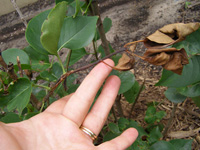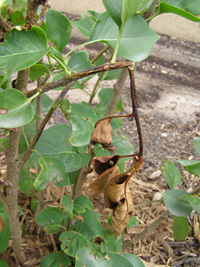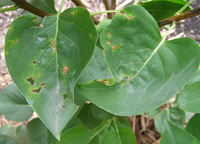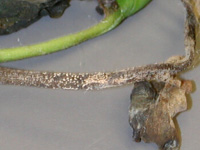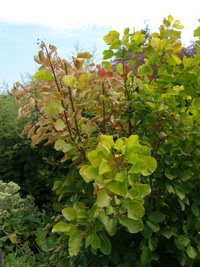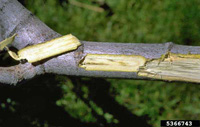Extension > Garden > Diagnose a problem > What's wrong with my plant? > Deciduous > Lilac > Leaves brown to black and wilted
Lilac > Leaves > Leaves brown to black and wilted
1 of 3
Bacterial Blight
Pseudomonas syringae pv. syringae
- Dark brown leaf spots with yellow halos, center of spot may crack and fall out
- Leaves on the end of the branch turn completely brown to black
- Flower buds are limp and black
- Infected buds are black and will not open
- Common with cool wet spring weather
- More information on Bacterial Blight
2 of 3
Ascochyta Blight
Ascochyta syringae
- Current year's shoots and flower stalks are wilted, brown and often form shepherd's crook
- The stem of infected shoots is tan, shrunken and peppered with gray to pale orange spore producing structures
- Water soaked, olive colored blotches appear on leaves in late summer; coalesce until entire leaf is brown
- Leaf blotches may grow together until entire leaf is brown
- More information on Ascochyta Blight
3 of 3
Verticillium wilt
Verticillium dahlia
- Leaves on one to several branches turn red to yellow, wilt, die and fall off
- Dark olive to gray streaks are often visible in the sapwood if the bark is peeled back
- The entire canopy may show symptoms in a single season or take several years
- Symptoms are often most obvious in late summer and autumn but can occur throughout the growing season
- More information on Verticillium wilt



